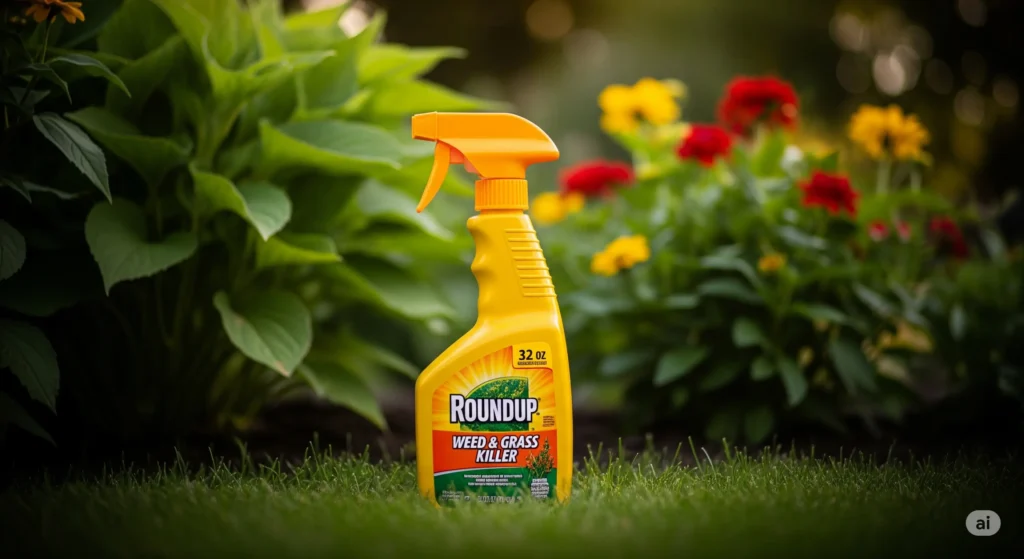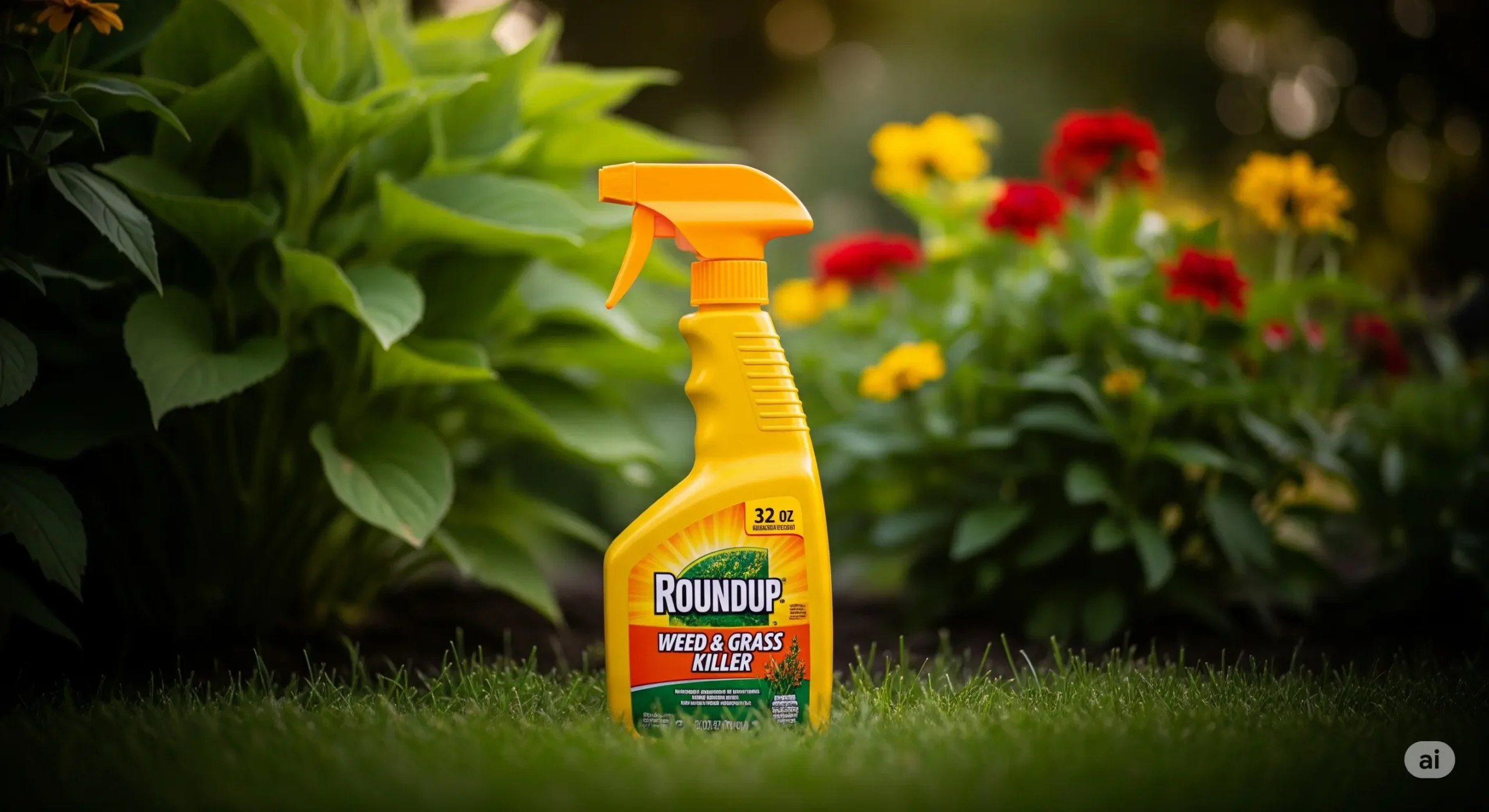If you’ve ever done a bit of gardening or tried to tame a stubborn patch of weeds, you’ve probably heard of Roundup. It’s one of the most well-known weed killers in the world, used by farmers, landscapers, and backyard gardeners alike. But over the years, the question “is Roundup safe to use now” has been popping up everywhere — from social media debates to courtrooms.
I’ll be honest, I’ve used Roundup myself in the past. The first time I bought it, I didn’t think twice. I sprayed it along my driveway and felt pretty satisfied watching the weeds wilt in a matter of days. But as news stories started surfacing about lawsuits, health risks, and environmental concerns, I began to wonder: was I putting myself, my family, and my pets at risk?
So, I decided to dig deeper — not just reading headlines, but going into research papers, expert opinions, and even talking to local gardening store owners. Here’s what I found.

My First Encounters with Roundup
Back then, Roundup felt like magic. I’d spray it, and within a week, the stubborn weeds would be gone. No bending over for hours pulling roots, no endless re-sprouting. It was quick, easy, and cheap.
But one evening, over a family dinner, my cousin casually mentioned, “You know they’re saying Roundup might cause cancer, right?” I laughed it off at first, but that night I couldn’t shake the thought. I started reading more about the ongoing debates around the safety of this product and asking myself the question: is Roundup safe to use now or am I playing with fire?
What’s Actually in Roundup?
The main active ingredient in Roundup is glyphosate. Glyphosate works by targeting an enzyme plants need to grow, but animals (including humans) don’t have this enzyme — which is partly why manufacturers claim it’s safe.
However, controversy grew after the World Health Organization’s International Agency for Research on Cancer (IARC) classified glyphosate as “probably carcinogenic to humans” in 2015. This didn’t mean it definitely causes cancer, but it raised enough questions to spark lawsuits and deeper studies.
Some research has linked high exposure to glyphosate with non-Hodgkin lymphoma, while other studies found no clear connection. This conflicting data is exactly why so many people are asking is Roundup safe to use now, especially when using it around homes, schools, and farms.
What Experts and Agencies Say
I wanted a clearer answer, so I looked at what major organizations were saying:
- EPA (Environmental Protection Agency) in the U.S. states that glyphosate is “not likely to be carcinogenic” when used as directed.
- WHO (World Health Organization) says it’s “probably carcinogenic” in certain situations.
- European Food Safety Authority (EFSA) concludes it’s unlikely to pose a cancer risk to humans.
Confused yet? So was I. Different agencies interpret the data differently. This makes the “is Roundup safe to use now” debate less about clear black-and-white answers and more about how much risk you’re willing to accept.
My Own Safety Rules for Using Roundup
Even with the mixed opinions, I decided to keep using Roundup — but with extra precautions. Here’s what I personally do to lower any potential risks:
ALSO READ: Is It Safe to Use Expired Eye Drops? 5 Critical Risks to Avoid
- Wear gloves and long sleeves when spraying.
- Avoid windy days so I don’t inhale any mist.
- Keep kids and pets indoors until the treated area is completely dry.
- Use it sparingly — only where weeds are truly a problem.
- Wash up immediately after using it.
Following these habits helps me feel more comfortable about my decision, but I still can’t ignore the lingering question: is Roundup safe to use now if even experts don’t fully agree?
The Environmental Side of the Story
It’s not just about human health — glyphosate’s environmental impact is also a big topic. Studies suggest it can affect soil health, reduce biodiversity, and harm aquatic life if it runs off into waterways.
When I learned this, I started considering alternative weed control methods in my own yard. Things like mulching, vinegar sprays, and even old-fashioned hand-pulling for smaller patches. These won’t replace Roundup entirely for me, but they’ve reduced how often I reach for it.
Still, millions of farmers depend on Roundup for large-scale weed control, which is why completely banning it isn’t simple. That’s another reason the question “is Roundup safe to use now” doesn’t have an easy yes-or-no answer — it’s tied up with economics, farming efficiency, and global food supply.
The Legal Battles
You might have seen news about lawsuits against Monsanto (and later Bayer, which bought Monsanto). Many plaintiffs claim Roundup caused their cancer after years of heavy use. Some have won huge settlements, while others have lost their cases.
These legal fights don’t automatically prove danger, but they do show there’s enough concern for people to take the issue to court. Every time I read about a new verdict, it makes me pause and rethink: is Roundup safe to use now, or am I just trusting too much in corporate claims?
What I Tell Friends Who Ask Me
Whenever friends ask for my take, I tell them this:
- If you use Roundup rarely and take proper precautions, the risks are likely very low.
- If you’re spraying large amounts often, you should be more cautious and maybe explore alternatives.
- Always store it safely away from children and pets.
In other words, the answer to “is Roundup safe to use now” is partly about the product, and partly about how you use it.
My Final Thoughts
After years of occasional use and lots of research, my personal verdict is this:
Yes, Roundup can still be used safely if you follow strict safety measures, use it sparingly, and stay informed about new research. But if you’re uncomfortable with any risk at all, there are other weed-control options that will give you peace of mind.
For me, I’ll keep it in my gardening toolbox — but it’s no longer my first choice. The question “is Roundup safe to use now” will probably stay in my head every time I pick up that spray bottle, and honestly, that’s not a bad thing. Staying cautious is part of being a responsible gardener.
FAQs About Roundup
1. What is the main ingredient in Roundup?
The main active ingredient is glyphosate, a chemical that kills weeds by stopping a plant enzyme needed for growth.
2. Is glyphosate banned anywhere?
Yes, some countries and cities have restricted or banned its use, especially in public areas like parks and schools.
3. Can Roundup cause cancer?
Some studies link high exposure to glyphosate with certain cancers like non-Hodgkin lymphoma, but other studies do not. Agencies disagree, which is why the debate continues.
4. Is Roundup safe to use around pets?
Keep pets away until the treated area is completely dry, and follow all safety instructions to minimize risk.
5. Are there safer alternatives to Roundup?
Yes — vinegar-based sprays, mulching, boiling water, or manual removal can work for smaller areas.
6. How can I reduce my risk when using Roundup?
Wear protective gear, avoid windy conditions, keep children and pets away, and wash up after use.
